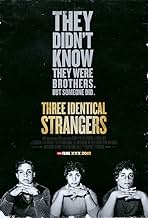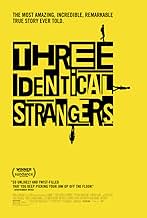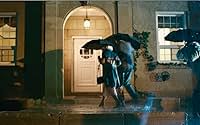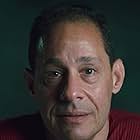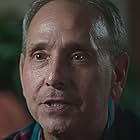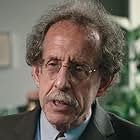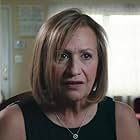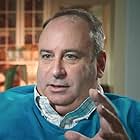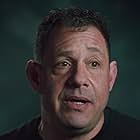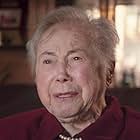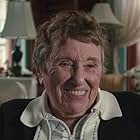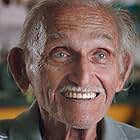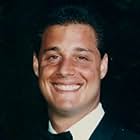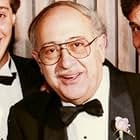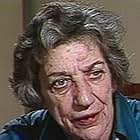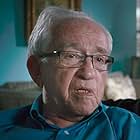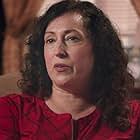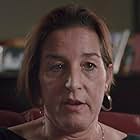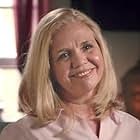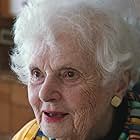PUNTUACIÓN EN IMDb
7,6/10
43 mil
TU PUNTUACIÓN
En el Nueva York de los 80, tres jóvenes se conocen y descubren que son trillizos separados al nacer. Entonces desvelarán porqué.En el Nueva York de los 80, tres jóvenes se conocen y descubren que son trillizos separados al nacer. Entonces desvelarán porqué.En el Nueva York de los 80, tres jóvenes se conocen y descubren que son trillizos separados al nacer. Entonces desvelarán porqué.
- Dirección
- Guión
- Reparto principal
- Nominado para 3 premios Primetime Emmy
- 12 premios y 58 nominaciones en total
Robert Shafran
- Self
- (as Bobby Shafran)
Eddy Galland
- Self
- (metraje de archivo)
Richard Kellman
- Self
- (metraje de archivo)
Justine Wise Polier
- Self - President, Louise Wise Services
- (metraje de archivo)
Reseñas destacadas
What is the primary factor in making us who we are? Were the truly great figures of pure evil - Elizabeth Báthory, Adolf Hitler, Harold Shipman, Peter Scully, Adam Sandler - always destined to become who they became, or are there to be found moments and influences in their environment which turned them into the monsters with whom we're familiar? Is our destiny genetically encoded at the moment of our conception? Does biological determinism supersede free will? In short, it's the age-old question of nature vs. nurture. Focused on precisely these questions, twin studies involve researching twins to so as to compare and contrast the importance of genetic factors against environmental factors. When most people hear the term "twin studies", they probably think of Josef Mengele's sickening experiments in Auschwitz; however, these experiments were inhuman and not even remotely typical of scientifically approved twin studies, which are an accepted, if somewhat controversial, attempt to determine the etiology of differential psychologies in individuals who are genetically similar.
And these are the murky waters charted by director Tim Wardle's Three Identical Strangers, presenting a bizarre stranger-than-fiction story, which begins as a light-hearted human-interest piece before taking several darker turns. However, for me, although the fascinating central story is undoubtedly gripping, there are just too many egregious problems in the telling, including an excess of distasteful sensationalism; a dearth of contextualising scientific information; overly simplistic ethical, moral, philosophical, and esoteric conclusions; stylistic drabness; and, an overreliance on plot twists, which often forces the filmmakers to manipulate the material beyond what you would expect of a documentary.
The film tells the story of Bobby Shafran, Eddy Gallan, and David Kellman, three young men in New York, who, through luck and coincidence learn they are triplets who had been separated as babies. Upon meeting, they quickly bond, move into an apartment together, and open a restaurant in New York, Triplets Roumanian Steak House. Becoming minor celebrities, they appear on talk shows across the country and have a cameo in Buscando a Susan desesperadamente (1985). However, they and their families are puzzled as to why they had been separated, and why their adoptive parents had not been told they were triplets. Was it a coincidence that Bobby had been placed with an affluent family, Eddy with a middle-class family, and David with a blue-collar family? Did the regular aptitude and psychological tests they received as children, part of what their parents were told was a "routine childhood-development study", have anything to do with their separation? What was the involvement of one of the country's largest social service agencies, the Jewish Board of Family and Children's Services? How much did New York's most preeminent Jewish adoption agency, Louise Wise Services, know? How was Dr. Peter B. Neubauer of the Jewish Board's Child Development Centre in Manhattan involved? How did the triplets' birth mother fit into what happened? As they begin to investigate, they soon stumble upon a series of shocking secrets that would change their lives, and the lives of many others, forever.
A noticeable structural element concerns what Wardle and editor Michael Harte referred to at a Q&A after a screening in Dublin as a "past tense" and a "present tense". The past tense section covers roughly the first half of the film, running up to the end of the first round of interviews, which were conducted from 2011-2015. The present tense section then picks up in 2016. The transition between the two is pretty obvious, but it's worth mentioning as it's not something you usually see in a documentary. Half-way through the film, Wardle thanks Bobby and David, who are being interviewed separately, and they say goodbye, get up, and leave the room. It's very unusual to see a documentary film drawing attention to its own artifice in this manner - the furthest most will go will be to include the interviewer's voice, but even that is relatively rare. By featuring a scene like this, especially so early in the film, Wardle and Harte are alerting the audience to the fact that something has changed, and from here on out, things are going to be in a different register.
The film has two major themes; morality/ethics and nature vs. nurture. In terms of morality, Wardle has referred to the scientists behind splitting the triplets up as succumbing to "noble cause corruption", arguing that they probably set out to accomplish something laudable, but were not above using unethical means to do so. It does, however, seem strange that when examining the morality of what was done to the brothers, Wardle makes no mention of David Reimer, a male who was reassigned as a girl in 1965 when he was only a few months old and raised female, based upon dishonest advice given to his parents by psychologist John Money, who was attempting to prove that gender identity is learned. As there are a lot of parallels between the brothers' stories and Reimer's, and between Neubauer and Money, including a reference or two would have helped contextualise things.
As to the question of nature vs. nurture, initially, events seem to point very much to nature - the brothers all smoked the same brand of cigarettes; they had all been amateur wrestlers; they had the same taste in women; they had similar speech patterns. The media at the time ate this up, with their appearances on talk shows designed to leave the audience stunned at their similarities. However, as the documentary goes on, the argument shifts, with the brothers themselves admitting they emphasised their similarities at the time, and the media was more than happy to ignore any differences, leading to what was apparently a clear win for biological determinism. As time went on, their differences began coming to the surface, and ultimately, the documentary very much argues in favour of nurture.
However, how it goes about establishing this argument is extremely questionable, with Wardle sliding more and more into sensationalism. So intent is he on controlling our perceptions that he leaves out a massive piece of information until such time as he deems it pertinent to reveal, and when he does so, he explicitly tells us what to think about it, pushing us to one specific response, when the event cries out for a more ambiguous presentation. It's difficult to go into any of this without straying into spoilers, so consider the rest of this paragraph a spoiler. Essentially, Wardle paints the suicide of one of the brothers as unquestionably the result of his adopted father's harsh disciplinarian parenting, a father who is still alive, and who appears in the film. Wardle and Harte do this by cutting from a clip of that father wondering if he had a role in the suicide to one of the other brothers basically saying, to paraphrase, "I'm still alive because my parents weren't as strict as his." Blaming his death entirely on parenting in this manner is facile, grossly overly simplistic, and offensive. In fact, the way Wardle handles the suicide in general is deplorable, teasing it and teasing it, before gleefully revealing it for maximum tabloid-esque shock value. The sense of Wardle manipulating the material isn't helped by the fact that the absence of the third brother from the talking head interviews tips off the audience from the get-go as to where the story is heading. Why not just state it right up front, cutting back on the silly twist element of the narrative? It's not like people would get up and walk out upon seeing a "spoiler" like that at the outset.
There are other problems, however. Aesthetically, the documentary is drab and dull, almost lifeless. With nothing cinematic about it whatsoever, it could easily be a report from a TV news magazine show, designed for maximum exposure rather than artistic inventiveness. The recreations are bland, and the talking head interviews are flat. Additionally, twin studies are a recognised and accepted scientific practice, but Wardle is so intent on making sure we are appalled at what happened to the brothers that he provides almost no context whatsoever. If he had spent less time trying to steer the viewers' emotions and more in providing a broader theoretical framework, the film would have worked much better, allowing the audience to find their own position in relation to what was done rather than simply following the director's lead. He also ignores a great deal of potentially interesting material. For example, why did their restaurant fail? Indeed, we never really get any sense of what the brothers' day-to-day life was like after they found each other. When they moved in together, how did that feel, for example? It's as if he doesn't want to dig too deep into anything just in case he finds something that might not fit into the grand narrative he's constructing.
The story of Three Identical Strangers poses fascinating questions about nature vs. nurture and the morality of certain types of research, but the film is so intent on the "nurture" answer that Wardle's subjective opinion comes across far more than it ought. More interested in driving home the shock value of some of the events than providing a penetrating documentary about free will vs biological determinism, there is little here that a reader wouldn't be able to find on Google. Given the outrageousness of the material, that Wardle has made such a conventional film is disappointing. It's an interesting enough piece, but that's more to do with the fascinating subject than the presentation.
And these are the murky waters charted by director Tim Wardle's Three Identical Strangers, presenting a bizarre stranger-than-fiction story, which begins as a light-hearted human-interest piece before taking several darker turns. However, for me, although the fascinating central story is undoubtedly gripping, there are just too many egregious problems in the telling, including an excess of distasteful sensationalism; a dearth of contextualising scientific information; overly simplistic ethical, moral, philosophical, and esoteric conclusions; stylistic drabness; and, an overreliance on plot twists, which often forces the filmmakers to manipulate the material beyond what you would expect of a documentary.
The film tells the story of Bobby Shafran, Eddy Gallan, and David Kellman, three young men in New York, who, through luck and coincidence learn they are triplets who had been separated as babies. Upon meeting, they quickly bond, move into an apartment together, and open a restaurant in New York, Triplets Roumanian Steak House. Becoming minor celebrities, they appear on talk shows across the country and have a cameo in Buscando a Susan desesperadamente (1985). However, they and their families are puzzled as to why they had been separated, and why their adoptive parents had not been told they were triplets. Was it a coincidence that Bobby had been placed with an affluent family, Eddy with a middle-class family, and David with a blue-collar family? Did the regular aptitude and psychological tests they received as children, part of what their parents were told was a "routine childhood-development study", have anything to do with their separation? What was the involvement of one of the country's largest social service agencies, the Jewish Board of Family and Children's Services? How much did New York's most preeminent Jewish adoption agency, Louise Wise Services, know? How was Dr. Peter B. Neubauer of the Jewish Board's Child Development Centre in Manhattan involved? How did the triplets' birth mother fit into what happened? As they begin to investigate, they soon stumble upon a series of shocking secrets that would change their lives, and the lives of many others, forever.
A noticeable structural element concerns what Wardle and editor Michael Harte referred to at a Q&A after a screening in Dublin as a "past tense" and a "present tense". The past tense section covers roughly the first half of the film, running up to the end of the first round of interviews, which were conducted from 2011-2015. The present tense section then picks up in 2016. The transition between the two is pretty obvious, but it's worth mentioning as it's not something you usually see in a documentary. Half-way through the film, Wardle thanks Bobby and David, who are being interviewed separately, and they say goodbye, get up, and leave the room. It's very unusual to see a documentary film drawing attention to its own artifice in this manner - the furthest most will go will be to include the interviewer's voice, but even that is relatively rare. By featuring a scene like this, especially so early in the film, Wardle and Harte are alerting the audience to the fact that something has changed, and from here on out, things are going to be in a different register.
The film has two major themes; morality/ethics and nature vs. nurture. In terms of morality, Wardle has referred to the scientists behind splitting the triplets up as succumbing to "noble cause corruption", arguing that they probably set out to accomplish something laudable, but were not above using unethical means to do so. It does, however, seem strange that when examining the morality of what was done to the brothers, Wardle makes no mention of David Reimer, a male who was reassigned as a girl in 1965 when he was only a few months old and raised female, based upon dishonest advice given to his parents by psychologist John Money, who was attempting to prove that gender identity is learned. As there are a lot of parallels between the brothers' stories and Reimer's, and between Neubauer and Money, including a reference or two would have helped contextualise things.
As to the question of nature vs. nurture, initially, events seem to point very much to nature - the brothers all smoked the same brand of cigarettes; they had all been amateur wrestlers; they had the same taste in women; they had similar speech patterns. The media at the time ate this up, with their appearances on talk shows designed to leave the audience stunned at their similarities. However, as the documentary goes on, the argument shifts, with the brothers themselves admitting they emphasised their similarities at the time, and the media was more than happy to ignore any differences, leading to what was apparently a clear win for biological determinism. As time went on, their differences began coming to the surface, and ultimately, the documentary very much argues in favour of nurture.
However, how it goes about establishing this argument is extremely questionable, with Wardle sliding more and more into sensationalism. So intent is he on controlling our perceptions that he leaves out a massive piece of information until such time as he deems it pertinent to reveal, and when he does so, he explicitly tells us what to think about it, pushing us to one specific response, when the event cries out for a more ambiguous presentation. It's difficult to go into any of this without straying into spoilers, so consider the rest of this paragraph a spoiler. Essentially, Wardle paints the suicide of one of the brothers as unquestionably the result of his adopted father's harsh disciplinarian parenting, a father who is still alive, and who appears in the film. Wardle and Harte do this by cutting from a clip of that father wondering if he had a role in the suicide to one of the other brothers basically saying, to paraphrase, "I'm still alive because my parents weren't as strict as his." Blaming his death entirely on parenting in this manner is facile, grossly overly simplistic, and offensive. In fact, the way Wardle handles the suicide in general is deplorable, teasing it and teasing it, before gleefully revealing it for maximum tabloid-esque shock value. The sense of Wardle manipulating the material isn't helped by the fact that the absence of the third brother from the talking head interviews tips off the audience from the get-go as to where the story is heading. Why not just state it right up front, cutting back on the silly twist element of the narrative? It's not like people would get up and walk out upon seeing a "spoiler" like that at the outset.
There are other problems, however. Aesthetically, the documentary is drab and dull, almost lifeless. With nothing cinematic about it whatsoever, it could easily be a report from a TV news magazine show, designed for maximum exposure rather than artistic inventiveness. The recreations are bland, and the talking head interviews are flat. Additionally, twin studies are a recognised and accepted scientific practice, but Wardle is so intent on making sure we are appalled at what happened to the brothers that he provides almost no context whatsoever. If he had spent less time trying to steer the viewers' emotions and more in providing a broader theoretical framework, the film would have worked much better, allowing the audience to find their own position in relation to what was done rather than simply following the director's lead. He also ignores a great deal of potentially interesting material. For example, why did their restaurant fail? Indeed, we never really get any sense of what the brothers' day-to-day life was like after they found each other. When they moved in together, how did that feel, for example? It's as if he doesn't want to dig too deep into anything just in case he finds something that might not fit into the grand narrative he's constructing.
The story of Three Identical Strangers poses fascinating questions about nature vs. nurture and the morality of certain types of research, but the film is so intent on the "nurture" answer that Wardle's subjective opinion comes across far more than it ought. More interested in driving home the shock value of some of the events than providing a penetrating documentary about free will vs biological determinism, there is little here that a reader wouldn't be able to find on Google. Given the outrageousness of the material, that Wardle has made such a conventional film is disappointing. It's an interesting enough piece, but that's more to do with the fascinating subject than the presentation.
What starts off as a light-hearted story of seeming coincidence slowly takes an meandering twist into darkness. I'm interested in original, well told stories and this one is exception. I find it amazing the lengths people will go to in the name of science, the trouble is, those people tend to lack certain human qualities and as a result people often end up suffering greatly on the basis of their decisions.
Ultimately, I think the testament of a great, well told story is that it leaves you asking yourself big questions. The subject matter of the film leaves you wondering that, but the ethics behind it does not make it right and it just amazes me that it was ever allowed to happen and who was ultimately accountable for that.
Ultimately, I think the testament of a great, well told story is that it leaves you asking yourself big questions. The subject matter of the film leaves you wondering that, but the ethics behind it does not make it right and it just amazes me that it was ever allowed to happen and who was ultimately accountable for that.
Incredible well constructed and very well written, beautifully paced and staged.
Honest heart moving testimonials underlined with stunning analysis and shocking revelations.
One of those documentaries that very carefully balances the emotional temperatures of the subjects discussed.
Very honest directing and as perfect an editing job as I can imagine.
These guys are at the top or their profession.
Thank you both the director and editor for coming to Hot Docs 2018
One of those documentaries that very carefully balances the emotional temperatures of the subjects discussed.
Very honest directing and as perfect an editing job as I can imagine.
These guys are at the top or their profession.
Thank you both the director and editor for coming to Hot Docs 2018
This documentary follows a set of identical triplets during their journey to discover each other and their circumstances. In truth, monozygotic sibling studies are not rare in psychology but there is usually a more rigorous ethics committee involved. It was a fascinating personal story that got more and more strange.
I always try to make the reviews I write spoiler-free so I can't really expand on the title of this review but while I thought this would be an entertaining documentary about an interesting and fun story, it really went into a whole different direction, and that's not a bad thing. In fact that what makes this whole documentary go from good to great. Unlike most other similar documentaries the reenactments are not badly done or too cringey and do help adding some visuals to the story; the pacing is well done and you can tell they've done the proper amount of research behind their narrative. All in all, I highly recommend it.
Argumento
¿Sabías que...?
- CuriosidadesThey were actually quadruplets, the fourth died at birth and was unknown until after the documentary.
- Citas
Robert Shafran: When I tell people my story, they don't believe it. I guess I wouldn't believe the story if someone else were telling it, but , I'm telling it and it's true, every word of it.
- ConexionesFeatured in WatchMojo: Top 10 Movies You Missed This Summer (2018)
- Banda sonoraSince You Been Gone
Written by Russ Ballard
Performed by Rainbow
Published by Union Square Music Songs Ltd., a BMG Company
Courtesy of Polydor Records (US)
Under license from Universal Music Operations Ltd.
Selecciones populares
Inicia sesión para calificar y añadir a tu lista para recibir recomendaciones personalizadas
- How long is Three Identical Strangers?Con tecnología de Alexa
Detalles
- Fecha de lanzamiento
- Países de origen
- Sitios oficiales
- Idioma
- Títulos en diferentes países
- Tres desconeguts idèntics
- Localizaciones del rodaje
- Empresa productora
- Ver más compañías en los créditos en IMDbPro
Taquilla
- Recaudación en Estados Unidos y Canadá
- 12.320.845 US$
- Fin de semana de estreno en EE. UU. y Canadá
- 171.503 US$
- 1 jul 2018
- Recaudación en todo el mundo
- 13.448.497 US$
- Duración1 hora 36 minutos
- Color
- Relación de aspecto
- 1.85 : 1
Contribuir a esta página
Sugerir un cambio o añadir el contenido que falta

Principal laguna de datos
What was the official certification given to Tres idénticos desconocidos (2018) in France?
Responde
![Ver Three Identical Strangers [Official Trailer]](https://m.media-amazon.com/images/M/MV5BZGIxNjBjYWUtYzExYS00NGFhLTkwYmQtZTZkNTcxYTY5ZTQ1XkEyXkFqcGdeQXRzdGFzaWVr._V1_QL75_UX500_CR0,0,500,281_.jpg)


